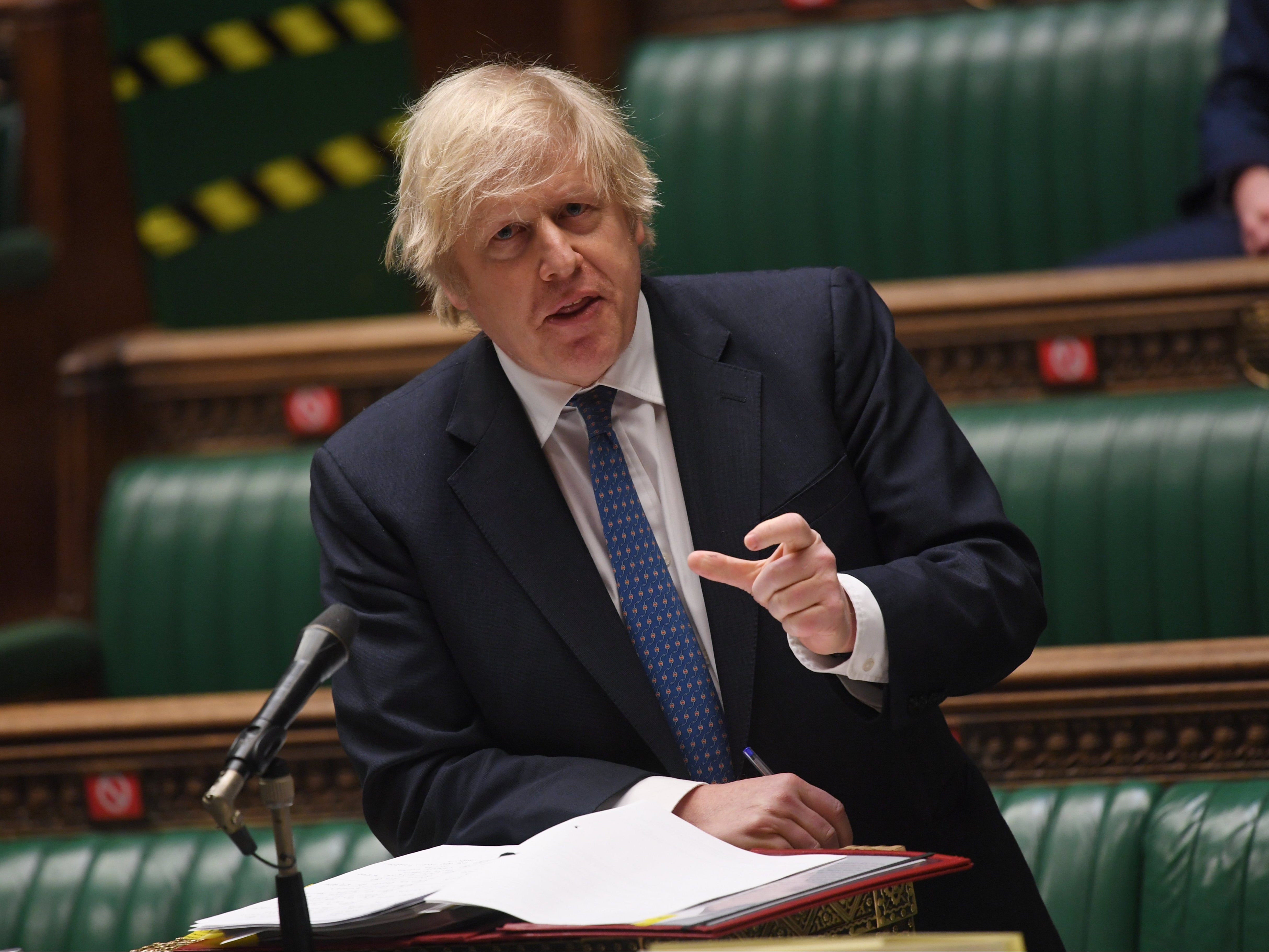Boris Johnson couldn’t do serious even when talking about violence against women
The prime minister faced a simple test in the Commons today, writes John Rentoul. Could he avoid party politics for just a quarter of an hour?


Today’s Prime Minister’s Questions was a simple test for Boris Johnson. Keir Starmer asked six questions about how the House of Commons could come together to ensure that the murder of Sarah Everard is a “turning point” in how we tackle violence against women and girls.
The prime minister started off well, agreeing with his opposite number and talking convincingly about the need to acknowledge that women do not feel heard. He called, in the sort of language not usually associated with him, for “cultural and social change”.
It seemed that we were set for one of those sessions where both sides understood that they had to be serious and avoid the usual party-political point-scoring. It doesn’t make for exciting parliamentary theatre, but sometimes there is a place for constructive and collegiate discussion.
Except that it did in fact make for tense viewing, because everyone watching knew that Johnson wouldn’t be able to keep it up, so there was the drama of waiting for the moment when his better self would yield in its unequal struggle with his normal self and he would revert to type.
That moment came in answer to Starmer’s fourth question, about the low rate of successful prosecutions for sexual violence. “He’s entirely right, Mr Speaker,” Johnson began, maintaining the facade of cross-party unity for longer than anyone had thought possible.
Then he gave up. “It would have been a good thing if the whole house could have voted last night for tougher sentences,” he said, referring to Labour’s decision to vote against the policing bill. “In that collegiate spirit, I would ask him to work together with us.”
Read more:
Of course he knows that Starmer doesn’t oppose the sentencing provisions of the bill – indeed Labour demands even longer sentences for sexual violence – and that Labour voted against the bill because of the loosely worded powers it gives the police to clamp down on protests that cause “inconvenience”.
Starmer duly called for tougher sentences for rape and sexual violence in his next question, to which Johnson responded with theatrical sarcasm: “Wouldn’t it be a wonderful thing if there was a bill going through this House for tougher punishments for sex offenders? … As it happens, there is such a bill before the House. They actually voted against it on a three-line whip and I think it was crazy.”
Starmer refused to be diverted and continued to make constructive suggestions for improving the law. “I don’t care if this becomes a government bill; all I care about is that we make progress,” he said.
Johnson reverted to bipartisan reasonableness: “I am grateful to him for the collegiate way he is addressing this and the way he is reaching out across the chamber, and I think that’s entirely right in the circumstances.” He managed to keep this up for a few seconds until he came to the “but”: “But I do think he should not try to misrepresent what the bill was trying to do.”
That earned him a telling-off from the speaker, who said that “nobody would misrepresent each other in this house”. But Johnson cannot suppress the instinct for political battle, even when Starmer asks him to give it a rest for the sake of a murdered woman.
Our inconsistent feminist prime minister then went back to being inconsistently feminist in answer to a question from Charlotte Nichols, the Labour MP for Warrington North. “She’s completely right. We can do all the things we’ve talked about – two men arguing over the despatch box – we can bring in more laws, tougher sentences, all that kind of thing, but we have to address the fundamental issue of casual everyday sexism and the apathy that fails to address the concerns of women.”
If he had managed to keep up that tone for just the quarter-hour of his exchanges with Starmer, he might have emerged with some credit. As it was, he faced a simple test of whether he could avoid party politics in the wake of a murder that has shocked the nation, and he failed.
Join our commenting forum
Join thought-provoking conversations, follow other Independent readers and see their replies
Comments